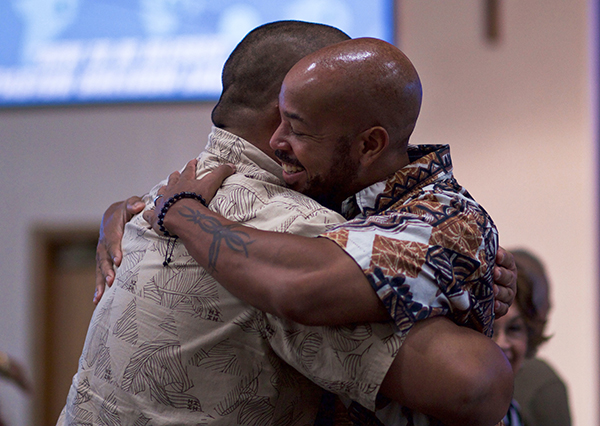If I asked you what is the difference between forgiveness and reconciliation, what would you say?
The Bible says we are to forgive one another. As a matter of fact, Christ said we are to forgive one another not seven times, but seventy times seven. On the other hand, the Apostle Paul said that God reconciled us to himself through Christ and gave us the ministry of reconciliation. So, is forgiving one another the same as reconciling to one another? Or are they different? And which one shall we do?
Both forgiveness and reconciliation assume there has been a relationship breakdown, no argument here. Something happened, and now both sides are estranged — a friendship, a business partnership, even a marriage. There is now an air of awkwardness or conflict in the room.
My very large Koine Greek dictionary tells me that to forgive means “to cancel, remit or pardon.” When we forgive someone, we release him or her from obligation or consequence, whether legal or moral. We no longer hold on to the wrong done to us, harboring it in our hearts. On the other hand, to reconcile means to “exchange hostility for a friendly relationship.” When we reconcile with someone, we go from an estranged relationship to a relationship in harmony.
In my humble opinion, I do see a difference. Forgiveness is, well, forgiveness. Forgiveness happens when a person pardons someone who has wronged him. Forgiveness is a one-way street. All it takes is for a person to forgive another, and we have forgiveness. Christians sometimes make the mistake of thinking of forgiveness as a two-way street. They forgive, but they also expect the one who has wronged them to repent and ask for their forgiveness. This is not forgiveness. Stephen forgave the Jews as they were stoning him. As I say to my children, we have no control over what others decide to say or do to us. We are only held accountable for our own speech and actions.

Reconciliation goes beyond forgiveness. Forgiveness alone will not get us to reconciliation. When we forgive someone, there is no guarantee the relationship will be restored. Most of the time, it won’t. We may forgive someone, yet remain estranged with that someone. That’s because reconciliation requires both parties to be looking to reconcile with one another. It is no use if only one party is interested in a restored relationship. Whereas forgiveness is a one-way street, reconciliation is a two-way street. For this reason, even though our hearts may genuinely seek for reconciliation, it may not always happen.
You and I are made of sin. We may be friends today, and just like that, estranged tomorrow. As sinners, it is only a matter of time before I step on your toes, or you step on mine. When we sin against one another, our first thought must always be to go to the one against whom we sinned and ask for forgiveness, or to forgive the one who sinned against us. This is already quite an accomplishment. But we must not stop here. Our second thought must be to go beyond that. We must always seek for reconciliation, understanding that it may not always happen. If you think about it, isn’t this precisely what our God is doing in our world? There was a day when each of us didn’t want to have anything to do with God, and he forgave us for our rebellion through Christ. But he didn’t stop there. He pursued us. He seeks to be reconciled with us, knowing that not all hearts will be tender towards reconciliation. Some will. Others will not.